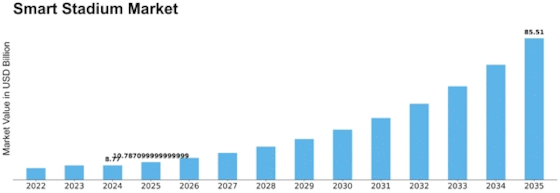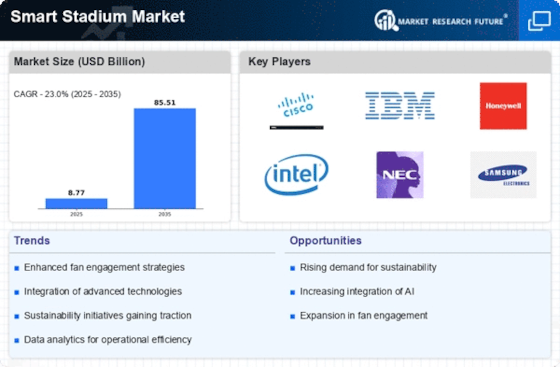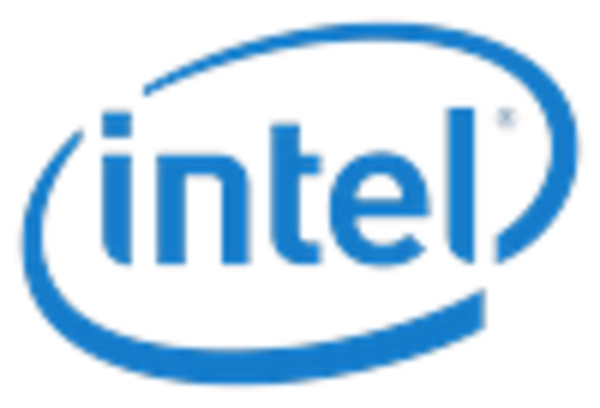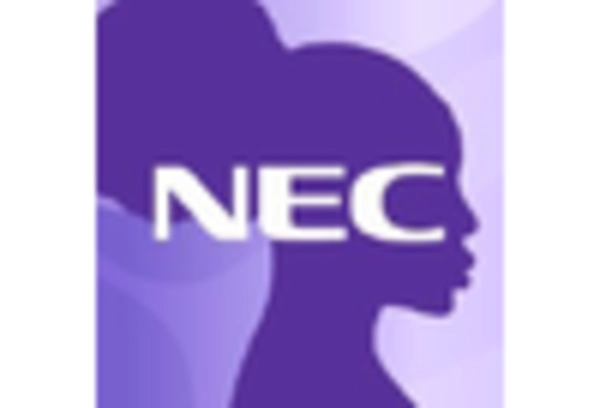Smart Stadium Size
Smart Stadium Market Growth Projections and Opportunities
The Smart Stadium Market is influenced by a multitude of market factors that collectively contribute to its growth and transformation. One primary driver is the increasing demand for enhanced fan experiences. As sports enthusiasts seek more immersive and engaging experiences, smart stadiums leverage technology to provide features such as high-density Wi-Fi, mobile apps, and augmented reality. These innovations not only connect fans to the game but also offer personalized services, interactive content, and real-time updates, creating a more enjoyable and memorable experience.
Technological advancements play a pivotal role in shaping the Smart Stadium Market. The integration of cutting-edge technologies, including Internet of Things (IoT), sensors, and data analytics, enables stadiums to become intelligent and connected environments. IoT devices, such as smart sensors and beacons, enhance operational efficiency by providing real-time data on crowd management, security, and facility maintenance. These technologies not only streamline stadium operations but also contribute to the overall safety and security of attendees.
The rise of smart cities and urbanization is another key factor influencing the Smart Stadium Market. As cities embrace the concept of becoming smarter and more connected, smart stadiums become integral components of the urban landscape. The connectivity of smart stadiums with surrounding infrastructure, transportation systems, and city services contributes to a seamless and integrated experience for fans. This alignment with the broader smart city initiatives creates opportunities for collaboration and shared resources, fostering the growth of the Smart Stadium Market.
The sports industry's focus on sustainability is also impacting the Smart Stadium Market. Stadiums are increasingly adopting eco-friendly practices and technologies to reduce their environmental footprint. Smart technologies contribute to sustainability efforts by optimizing energy consumption, waste management, and water usage. The implementation of energy-efficient lighting, smart HVAC systems, and waste reduction initiatives align with global sustainability goals, making smart stadiums environmentally conscious and attractive to both fans and stakeholders.
The monetization potential of smart stadiums is a significant factor shaping the market. Beyond enhancing fan experiences, smart stadiums provide new revenue streams for stakeholders. Mobile apps, in-stadium advertising platforms, and personalized offerings create opportunities for targeted marketing and sponsorship activations. The ability to gather and analyze fan data further enables targeted marketing efforts, contributing to the overall financial viability of smart stadiums.


















Leave a Comment